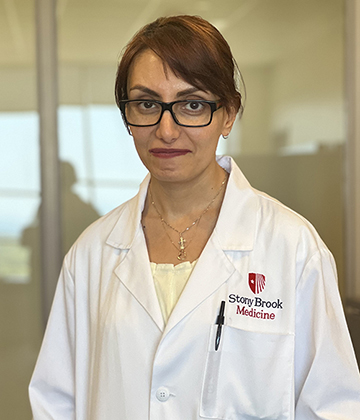
I graduated in medical laboratory science from Tehran University of Medical Science, Iran and I joined a Master’s degree program in medical biotechnology at Qazvin University of Medical Science, Iran. I followed my education in Italy where I gained my second Master’s degree in medical and pharmaceutical biotechnology at Siena University in Italy. I joined the Laboratory of Microbiology and Medical Biotechnology (LAMMB) and worked on the physicochemical properties of genetically modified bacteria through zetapotential measurement, isoelectric point, and charge distribution, as well as establishing a R model to predict the bacterial properties. Then I went on to gain my PhD in medical biotechnology with Professor Gianni Pozzi. During my PhD, I generated genetically modified recombinant vaccine against Mycobacterium tuberculosis using live bacterial vectors such as Streptococcus gordonii as well as developing a non-invasive oro-tracheal mice model of Streptococcal pneumonia. Due to the onset of the COVID-19 pandemic, from July 2021 onwards, I resumed my PhD studies in the United States focusing on computational analysis of the data I collected using big data analysis with R programing. During this time, I worked on RNA-seq analysis and developed a model of combining RNA-seq and cytokine concentrations from mice splenocytes derived from mice infected intranasally with Streptococcus Pneumonia which were stimulated in vitro. I joined Stony Brook University, department of Nephrology and under Dr. Sian Piret’s supervision, I am working on the PT metabolism in AKI utilizing in vitro and in vivo models.
As a postdoctoral associate I study the role of activation of branched chain aminoacids (BCAA) catabolism during acute kidney injury (AKI) in proximal tubules. There are currently no therapies available to slow or reverse AKI. During AKI, metabolic pathways become defective which leads to accumulation of substrates in the cell. For instance, when the BCAA catabolic pathway is defective, BCAAs accumulate in the cell. Defective BCAA catabolism may cause PT cells injury in two possible ways, loss of cell energy source and activation of m-TORC1 signaling through accumulation of leucine. I am recently working on a way to activate BCAA metabolism so PT cells may be rescued from injury.
samaneh.dimartino@stonybrookmedicine.edu